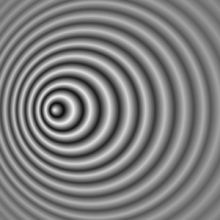Do radio signals change as we move to and from the transmitter? Do our movements affect how a radio boradcast sounds? We find the answer in this question of the week. Plus, we ask why crocodiles haven't changed all that much in the last few million years.
In this episode

00:00 - Does music radio get doppler shifted?
Does music radio get doppler shifted?
We put this to Professor Stafford Withington, from the department of physics at the University of Cambridge:
I think the question is quite subtle and actually has three parts to it. The first part of the question is very straightforward - do radio waves exhibit the Doppler effect? And they certainly do. And anyone who's been caught speeding by a policeman using a microwave speed gun certainly knows that that's the case. The police speed gun uses the Doppler effect to determine your speed relative to the police car. The second part of the question is if I now encode some audio information on the radio wave, does the Doppler effect get imparted on to the radio signal? That's much more subtle and needs thinking about carefully. Basically, the question is - let's say, I have a radio program like Radio 3 playing an oboe and the oboe is playing a perfect A, if I put my radio to my ear and move towards the transmitter at high speed, do I expect to hear the oboe's note increase? The answer is closely related to the way in which the amplitude signal is encoded onto the radio signal and it can be done in two ways. Traditionally, amplitude modulation (AM) was used and this is where the audio information is encoded on the radio signal by modulation of the amplitude of the radio signal, more laterly people use frequency modulation and that the audio signal is encoded in the form of the frequency of the transmitted wave. And it can be shown through some rather delicate arguments that in both of those cases, in fact the audio signal does take on the Doppler effect. So in other words, you would expect the oboe's note to change by some very small amount.
Diana - But how small will these differences be? Stafford - The third part of the answer however is whether the effect is detectable and the problem is that when you derive the appropriate equations and put the numbers into the equations, what you find is that for an audio signal, the shift in frequency is exceedingly small. So, even if I was to put a radio to my ear then move towards the transmitter at something like 10 metres per second, then you can show very simply that the shift in frequency of the audio signal would be of the order of thousands of a Hertz. And I'm afraid that the average radio receiver and indeed human hearing is not good enough to detect those changes, but it would be possible and in fact, quite straightforward to build an instrument which would detect that change.
The digital case is rather different again because the audio information is encoded in a very complicated way and so, the coupling between the listener and the radio wave that originally transported the information to the listener's home, that coupling is a very, very weak one. There's all sorts of electronics between those two stages in the process. And so, a digital signal will not display the Doppler effect.
- Previous Niobium: Chemistry in its element
- Next A Genetic "Hop" Forward









Comments
Add a comment